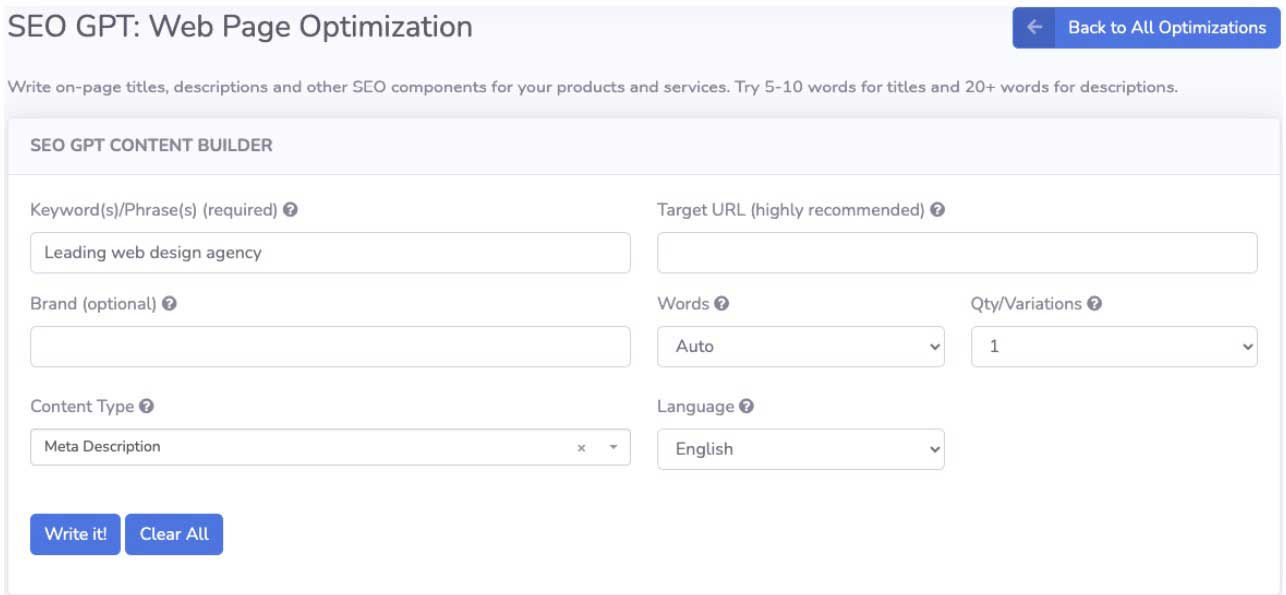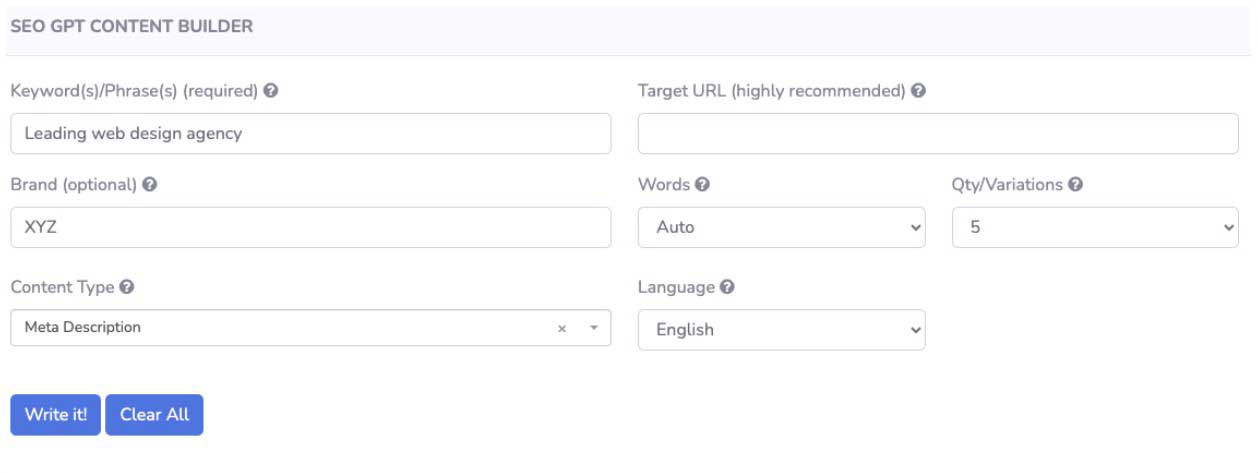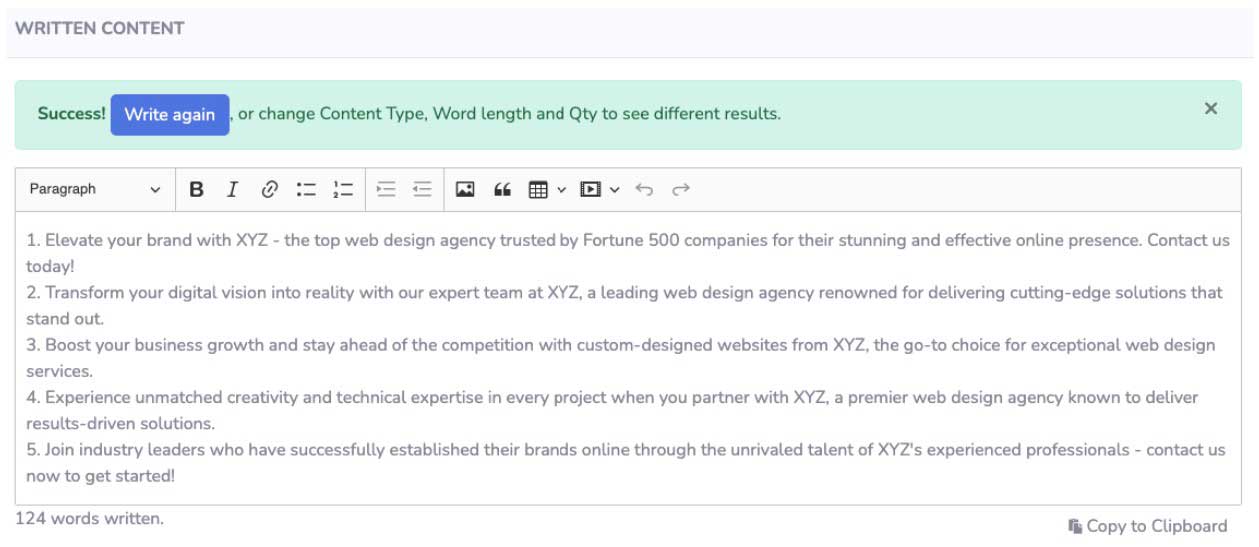With smart AI-generated meta tags, you can significantly enhance your site’s visibility and user engagement. Understand how leveraging SEO GPT technology not only streamlines keyword integration but also tailors content relevancy for improved rankings.
Table of Contents
Embrace the sophistication that AI brings to SEO practices. It shapes a tailored digital presence designed to outshine the competition and captivate audiences in today’s fast-paced online world.
Debunking Myths About AI-Generated Meta Tags
Let’s bust some myths about AI and meta tags. You might think using AI just muddles your site’s SEO, but no, it sharpens it. Know this: Google likes quality content made for real people, not robots.
So when you use AI to craft those meta descriptions with an eye on relevance and punchy phrases, magic happens. First up, think of clusters of content that say “expert here.” Use smart AI to fill gaps without fluff or fuss. Keep things tight and right on topic. Now, make them pop in Google Discovery because 2024 is all about visuals catching eyes big time.
Remember, local SEO is also key for shops nearby, and refresh old words often so they shine like new pennies every day; don’t let the dust settle. Keep close tabs as Google tweaks its game plan. You must zig each time they zag! There’s much buzz around Parasite SEO these days, hitching a ride on powerful domains can give your pages a hearty boost if done skillfully.
Now, hold onto your hats because backlinks are still the heavy hitters in town. Seek out those high-authority nods approvingly pointing at you across cyberspace.
Benefits of Using AI for Meta Description Generation
Using AI to craft your site’s meta descriptions, you get smart tools that work fast. These algorithms read your page and sum it up well. This means more time for you and less worry about SEO tasks.
Plus, they’re good at, getting the main points right into a neat package. These smart machines learn from lots of data on what works in search results. They spot trends and pick words that pull people to your pages better than before.
Make sure these clever summaries fit right with all else you’re doing for SEO. Just enough characters, clear talk, no grammar slips. And don’t forget the keywords!
How Do You Leverage SEO GPT for Meta Description Generation?
To harness SEO GPT for meta description creation, first pinpoint your main keywords. Then, feed these to the AI tool. It will craft unique descriptions that blend those keywords naturally while staying true to your content’s voice.
Remember, search engines favor short yet descriptive sentences here. Think 155 characters at most. This is where clarity meets creativity. Make each word work hard in your meta tags. They guide users and tell search engines what’s on each web page quickly. Ensuring headers like H1s reflect core ideas using terms people seek out online; let SEO GPT help you there, too.
Leverage Keywords You Found on SEO GPT Keyword Planner
Use the keywords that SEO GPT has picked for your site’s content. They fit right in with what people type when they look around online, which helps them find you faster. Let’s say you run a web development agency; words like “leading web design agency” work well to get noticed by those who need your skills.
When writing articles or blog posts, add suggested article keywords from SEO GPT into your piece. It ups the value and keeps readers hooked. Think of terms that deepen their knowledge. For local impact, if The Cozy Café is yours, use geo-targeted phrases such as “best coffee spots Downtown.” These draw nearby folks straight through your doors.
To leverage SEO GPT for meta description, just navigate to the ‘Web Page’ optimization tab, select ‘Meta Description’ from the drop-down menu, and enter your keyword there.
Adjust it to Your Brand
Tailor AI meta tags to fit your brand’s voice. This means fine-tuning words that echo your unique style and values. Remember, search engines favor content that stands out as genuine and relevant; doing this can improve click-through rates from SERPs significantly.
Let’s say your brand is XYZ. This is how you can tailor meta descriptions using SEO GPT:
Your goal is to merge the efficiency of AI with the authenticity of your brand’s message, a crucial balance for online success. Use terms commonly associated with your products or services so people know what you offer at a glance. It should feel natural, almost like someone from within speaking directly to potential customers who land on your page looking for exactly what you provide.
Implement and Rank
Put those smart AI-generated meta tags to work. First, update your website pages by adding new meta tags. These act as signposts that guide search engines right to your content. Make sure each tag is unique. This helps avoid confusion when search engines index your pages.
Once implemented, monitor your site’s position in search results over time with tools like Google Analytics or Search Console. Look for changes: are more people clicking through? Which pages climb up the rankings? This data tells you what’s working so you can refine strategies and keep improving visibility online.
Remember, solid SEO practice means staying current with algorithm updates from major search platforms. Always optimize ethically, keeping user experience and Google’s E-E-A-T principles at the forefront to bolster both rank and trust among users who find and visit your page.
Avoiding Common Pitfalls in Automated Tagging
Be wary of tags that don’t quite fit. Your site’s SEO hinges on precise, relevant meta tags. Mistagged content can mislead search engines and visitors alike, hurting your online presence.
Always review AI suggestions; an algorithm may not grasp subtle context nuances or recent trends you’re targeting. Accuracy matters most: a single incorrect tag could derail the effort poured into finely tuned optimization strategies. Avoid common pitfalls in automated tagging.
Follow these steps:
- Check AI tags for relevance.
- Update tagging criteria regularly.
- Assess each tag’s impact.
- Combine automation with human oversight.
Best Practices for AI-Generated Meta Descriptions
For top SEO results, the proper use of AI-generated meta descriptions is key. Pick a tool that’s easy and well-liked for the best outcomes. To start, feed lots of good content data to your chosen AI so it learns right.
Your new meta tags need to be spot on: clear, short, full with keywords, but still under 160 characters long. Make these smart summaries part of your wider SEO plan. Keep them focused and reflective of each page’s core topic. Regular checks ensure they do their job in lifting traffic numbers by matching what people seek online with precision.
Potential Challenges and Solutions
You want your site to rank top in searches, right? So, you use AI for quick meta tags. But remember: not all tools are equal.
Pick one that’s well-known and fits your needs perfectly, such as SEO GPT. To start, feed it lots of good content. Keep checking how it does. AI makes SEO smarter by doing the usual tasks better, like crafting those brief page summaries we call meta descriptions, plus saving you loads of time!
Just make sure these smart-made snippets have the keywords people look for online. They need to be short, too, between 150-160 characters is sweet, to avoid getting cut off on search results pages. Keep them clean and clear as well since messy grammar can harm more than help!
Always loop back this step into your overall plan for the best effect!
Embrace smart AI-generated meta tags to transform your website’s SEO. This innovative approach ensures precise, relevant descriptions that captivate users and search engines alike. With tools like those offered by SEO Vendor, you optimize content effectively while saving time.
Elevate visibility and click-through rates effortlessly as the algorithms craft optimized tags tailored for maximum impact online. Adopt this cutting-edge tactic today; watch your site rise in ranking, drawing more traffic than ever before with AI at the helm of your optimization strategy.













